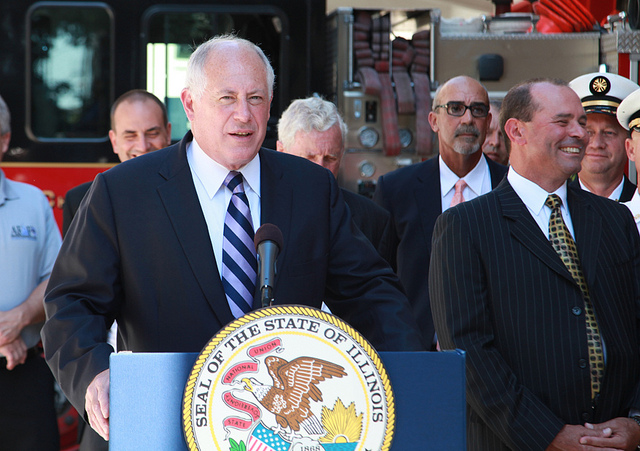Quinn Vetoes Ride-Sharing Bill
By Chuck Sudo in News on Aug 25, 2014 6:10PM
Illinois Gov. Pat Quinn vetoed legislation Monday that would have tightly regulated ride share companies such as Uber and Lyft statewide and forced communites across Illinois to implement ordinances in line with the proposed state regulations. Quinn, in a statement, said he vetoed the bill as part of his agenda to protect consumers, spur job creation and expand the state's economy.
"The principle of home rule is an important one," Quinn said. "I am vetoing this legislation because it would have mandated a one-size-fits-all approach to a service that is best regulated at the local level.”
Ride share companies and their supporters, including Illinois GOP gubernatorial nominee Bruce Rauner, have called on the governor to veto the bill for weeks. The move by Quinn now allows Chicago's own, less restrictive ride-sharing ordinance to take effect. That ordinance, which was passed by a 34-10 vote in City Council in May, prohibits companies from picking up street hails or riders from McCormick Place, O'Hare and Midway airports. However, that could change given the wording in the ordinance which includes the following in regards to those fares: “unless the commissioner determines, in duly promulgated rules, following consultation with the commissioner of aviation, that such pick ups can be accomplished in a manner that preserves security, public safety and the orderly flow of traffic; and . . . designated taxicab stands or loading zones.”
The City ordinance also requires ride-sharing companies which allow drivers who use their personal vehicle to monitor workloads, forward information to the city and purchase a specific license based on hours driven. For companies where drivers average more than 20 hours in a week, the company would be required to pay $25,000 a year. Each driver would also be required to obtain a public chauffeur's license, which is already required for cabdrivers. The company would also have to hire a third party to conduct a 21-point inspection on any ride-sharing vehicles. And City Hall would be involved conducting drug tests and background checks on drivers.
But the ordinance is more relaxed when it comes to companies where drivers average less than 20 hours a week. Those companies would be required to pay $10,000 a year, would have a Class A license and would be permitted to do their own background and drug checks and vehicle inspections as long as they have the required approval from City Hall.
Chicago's taxicab industry has been calling for the City to regulate ride-sharing companies like they do cabs. Mayor Rahm Emanuel's office released a statement Monday thanking Quinn for vetoing the state bill.
